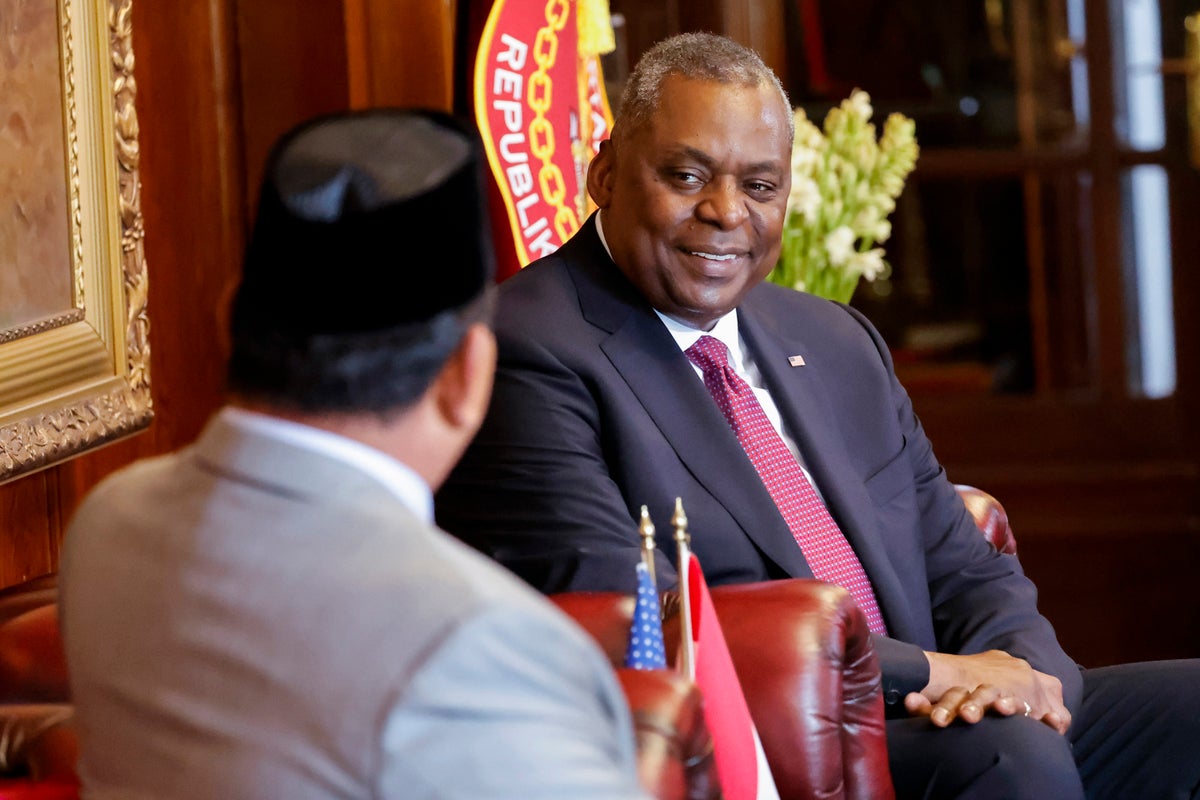
US defense secretary Lloyd J. Austin met his Indonesian counterpart on Monday to push stronger defense ties amid growing Chinese naval activity in the Indo-Pacific region.
Austin, at a joint news conference after meeting with Indonesian Defense Minister Prabowo Subianto, said they discussed ways to deepen the two countries' partnership, including through expanding interoperability and increasing investments in defense education.
“The United States is proud to partner with you as we work together to advance our shared vision of a free and open Indo-Pacific,” Austin said.
But Subianto stressed Indonesia’s neutral stance.
“I like to emphasize that Indonesia always takes the position of trying to maintain the best relationships with all nations, especially all the major powers,” Subianto said.
Austin arrived in Jakarta late Sunday from a visit to Canada’s Halifax city where he spoke about U.S. efforts to build a more resilient security architecture with allies and partners across the Indo-Pacific and Europe at the Halifax International Security Forum.
His visit to Indonesia comes less than a week after leaders of the Group of 20 economies met on Indonesia’s resort island of Bali. In a declaration, most strongly condemned the war in Ukraine and warned that the conflict is making an already delicate world economy worse.
“We are meeting as the world is grappling with assaults on the rules-based international order, especially Russia's unprovoked invasion against Ukraine,” Austin said, “And it’s especially vital now that more like-minded countries come together to uphold our shared principles, including the rule of law.”
He applauded Indonesia for its vote at the U.N. General Assembly earlier this year condemning Russia's aggression in Ukraine.
While Indonesia and China enjoy generally positive ties, Jakarta has expressed concern about Chinese encroachment on its exclusive economic zone in the South China Sea, which China claims virtually in its entirety.
Subianto said Indonesia sees China as a friendly nation, and the two countries have ways to manage possible misunderstandings and differences of opinion in disputes over territorial waters.
“We consider that we will be able to resolve them with dialogue,” Subianto said, “However, we do emphasize that Indonesia will defend its sovereignty and we will defend our independence.”
China and four members of the Association of Southeast Asian Nations have overlapping claims to the South China Sea, home to vital shipping lanes, plentiful fish stocks and undersea mineral resources. China and ASEAN have made little headway in finalizing a code of conduct to avoid conflicts in the area.
Austin and Subianto are both attending an expanded meeting of ASEAN security ministers starting Tuesday in Cambodia.
Chinese Defense Minister Gen. Wei Fenghe also is to attend, opening the possibility that he and Austin will hold face-to-face discussions.
Defense ministers from ASEAN and eight partner countries, including the U.S., Japan and China, are expected to join the two-day meeting.
While China’s influence and military strength in the region are growing rapidly, the U.S. remains its dominant military power. Washington also has a security alliance with the Philippines and strong relations with other ASEAN members.
U.S. Vice President Kamala Harris was expected to seek an expansion of the American military presence in the Philippines in a meeting Monday with President Ferdinand Marcos Jr.







